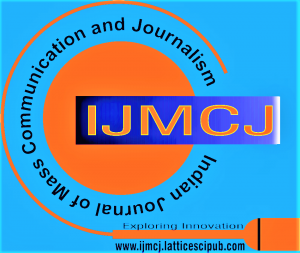![]()
Formalizing Creativity: Academic Writing in Early College Years
Suresh C. Joshi1, Jaitshree Naik2, Dhruv Aggarwal3
1Suresh C. Joshi, School of Psychology and Counselling, O. P. Jindal Global University, Sonipat, India.
2Jaitshree Naik, School of Psychology and Counselling, O. P. Jindal Global University, Sonipat, India.
3Dhruv Aggarwal, School of Psychology and Counselling, O. P. Jindal Global University, Sonipat, India.
Manuscript received on 24 February 2022 | Revised Manuscript received on 05 March 2022 | Manuscript Accepted on 15 March 2022 | Manuscript published on 30 March 2022 | PP: 25-28 | Volume-1 Issue-3, March 2022. | Retrieval Number: 100.1/ijmcj.C1011031322 | DOI:10.54105/ijmcj.C1011.031322
Open Access | Ethics and Policies | Cite | Mendeley | Indexing and Abstracting
© The Authors. Published by Lattice Science Publication (LSP). This is an open-access article under the CC-BY-NC-ND license (http://creativecommons.org/licenses/by-nc-nd/4.0/)
Abstract: The transition from high school to college can easily be deemed to be one of the biggest changes in a student’s life. However, due to its dramatic nature, one may fail to fully consider the intricacies of this change. In college, the criteria for evaluating students’ academic standing shifts from simple examinations to a blend of assignments and exams. Multiple assignments need the students to write authentic pieces of academic writing. This perspective article aims at providing a conceptual description, and analysis, of academic writing during early college years. We evaluate the structure and components of various stages in academic writing. The outcomes of the paper provide a thorough analysis of dichotomies that exist in students’ experiences using two models of literacy: The Autonomous Model, and The Ideological Model. To further reemphasize how crucial early college years are, a contrast has been made between what academic writing is and should be in high school; and what academic writing is in college. This contrast is exemplified using the Central Board of Secondary Education, which is India’s primary board for education. This article also explores the academic and cognitive dimensions of academic writing. Taking the current status quo and the recent transformation of the academic world into consideration, the outcome also highlights the challenges and limitations posed by the COVID-19 pandemic and provides recommendations to tackle the same. The article also introduces and appraises the idea of students in today’s world, who majorly identify as “digital natives.” It subsequently analyses how this identity impacts their academic life in a pandemic-struck online system of education. A brief yet elaborate account of the Indian context, and its structural realities were the key focus while making inferences. Finally, the article presents limitations and challenges faced by students in three ways, reiterating the contrast between high school and college in terms of academic instruction, briefly analyzing the social environment in college along with its possible implications, and commenting upon the ambiguity in academic expectations.
Keywords: Academic writing, COVID-19, digital natives, models of literacy
Scope of the Article: Communication Studies
